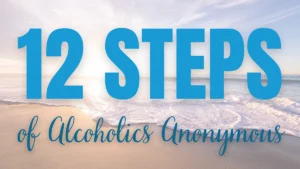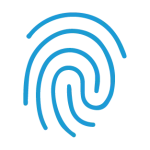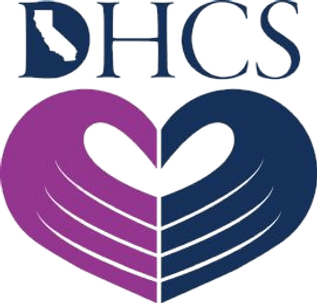Dealing with both bipolar disorder and addiction at the same time can feel overwhelming. These two conditions can affect each other, making it difficult to stay in control.
But with the right treatment and support, you can manage both and improve your quality of life. This guide will help you understand the connection between bipolar disorder and addiction, as well as the best ways to treat both conditions together.
What Is Bipolar Disorder?
Bipolar disorder (once called manic depression) is a mental illness that causes extreme mood changes. If you have bipolar disorder, you may feel overly happy, full of energy, or easily irritated at times (this is called a manic episode).
Other times, you may feel very sad, hopeless, or have no interest in anything (this is a depressive episode). These mood shifts can also affect your energy, activity, and focus.
How Common Is Bipolar Disorder?
According to Mental Health America:1
- About 1 in 40 American adults live with bipolar disorder.
- About 1% of American teenagers have it.
- Unlike many other mental illnesses, it affects men and women equally.
Bipolar disorder can be hard to diagnose. On average, it takes 10 years from the time you first notice symptoms to the time you get diagnosed. This happens because the symptoms can look like other mental health conditions, such as depression or anxiety.
Many people don’t realize they have bipolar disorder until their mood swings become more severe or start to affect their daily lives.
The Connection Between Bipolar Disorder and Addiction
Bipolar disorder often occurs alongside substance use disorders (SUDs), meaning individuals may struggle with both conditions simultaneously. This combination can lead to more severe health challenges.
How Common Is This Dual Diagnosis?
Research indicates that substance use disorders are present in up to 70% of patients with bipolar disorder.2 This high rate suggests a strong link between the two conditions.
Several factors contribute to the frequent co-occurrence of bipolar disorder and substance use including:
- Self-Medication: Some individuals may use alcohol or drugs to cope with mood swings or other symptoms of bipolar disorder.
- Genetic Factors: There may be genetic components that increase the risk for both conditions.
- Brain Chemistry: Both disorders can involve similar neurotransmitter imbalances, affecting mood and behavior.
Impact of Co-Occurring Bipolar Disorder and Substance Use
When bipolar disorder and substance use disorders occur together, they can lead to:
- More Severe Mood Episodes: Substance use can intensify manic or depressive episodes.
- Increased Risk of Suicide: The combination heightens the risk of suicidal thoughts and behaviors.
- Treatment Challenges: Managing both conditions simultaneously can be more complex, often requiring integrated treatment approaches.
Being aware of the link between bipolar disorder and addiction helps in finding the right treatment and improving life quality.
Effective Treatment Strategies for Co-Occurring Bipolar Disorder and Addiction
The key is to treat both conditions at the same time. If you only focus on one and ignore the other, you may struggle with relapse or worsening symptoms. Here are some of the best treatment strategies:
Integrated Dual Diagnosis Treatment
You need a treatment plan that addresses both bipolar disorder and addiction together. This is called dual diagnosis treatment. Doctors, therapists, and addiction specialists work as a team to create a plan that fits your needs.
- You may go through detox first to safely remove drugs or alcohol from your body.
- Therapy helps you understand how addiction and bipolar disorder affect each other.
- A psychiatrist may prescribe medication to help stabilize your mood.
Doctors, therapists, and addiction specialists work as a team to create a plan that fits your needs.
Medication and Holistic Therapy Approaches
Medication can help balance your mood and reduce the urge to use substances. Your doctor may prescribe:
- Mood stabilizers (like lithium) to control mood swings.
- Antidepressants (in some cases) if depression is severe.
- Medications for addiction to help with cravings or withdrawal.
Along with medication, holistic therapies can support your recovery. These include:
- Exercise improves mood and reduces stress.
- Meditation or yoga helps calm your mind.
- Healthy eating gives your brain the nutrients it needs.
Taking care of your body and mind together makes treatment more effective.
Support Groups and Lifestyle Changes
Support groups can connect you with others who understand what you’re going through. A group like Dual Recovery Anonymous (DRA) can provide encouragement.
Lifestyle changes can also help in recovery:
- Stick to a routine – Having a daily schedule can help you feel more in control.
- Refrain from using alcohol and drugs – Even small amounts can trigger mood swings.
- Remain connected – Friends, family, and support groups can keep you motivated.
Managing Triggers and Stress
Certain situations or feelings can make you want to use substances again. These are called triggers. Learning how to handle them is an important part of recovery.
- Recognize your triggers – Stress, loneliness, and conflict can all be triggers.
- Set a plan – If you feel the urge to drink or use drugs, have a healthy activity ready, like calling a friend or going for a walk.
- Practice relaxation techniques – Deep breathing, listening to music, going outdoors, or journaling can help reduce stress.
The more you understand your triggers and how to manage them, the easier it will be to stay on track.
Treating both bipolar disorder and addiction takes time and effort, but you can do it. The right combination of therapy, medication, support, and self-care will help you take control of your life. Help is available, and recovery is possible.
Find inpatient services at South Coast Counseling.
Sources:
- How common is bipolar? (n.d.). MHA Screening. https://screening.mhanational.org/content/how-common-bipolar/
- Gold, A. K., Otto, M. W., Deckersbach, T., Sylvia, L. G., Nierenberg, A. A., & Kinrys, G. (2018). Substance use comorbidity in bipolar disorder: A qualitative review of treatment strategies and outcomes. The American Journal on Addictions, 27(3), 188–201. https://doi.org/10.1111/ajad.12713








